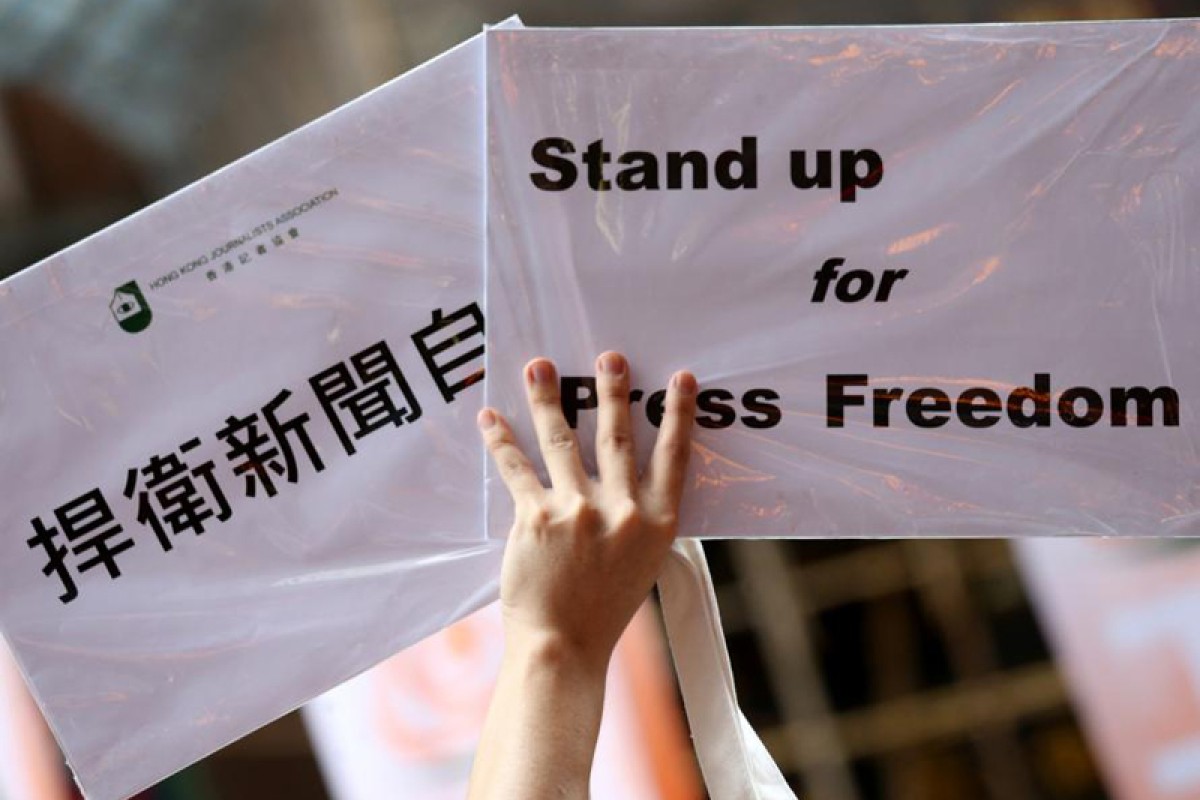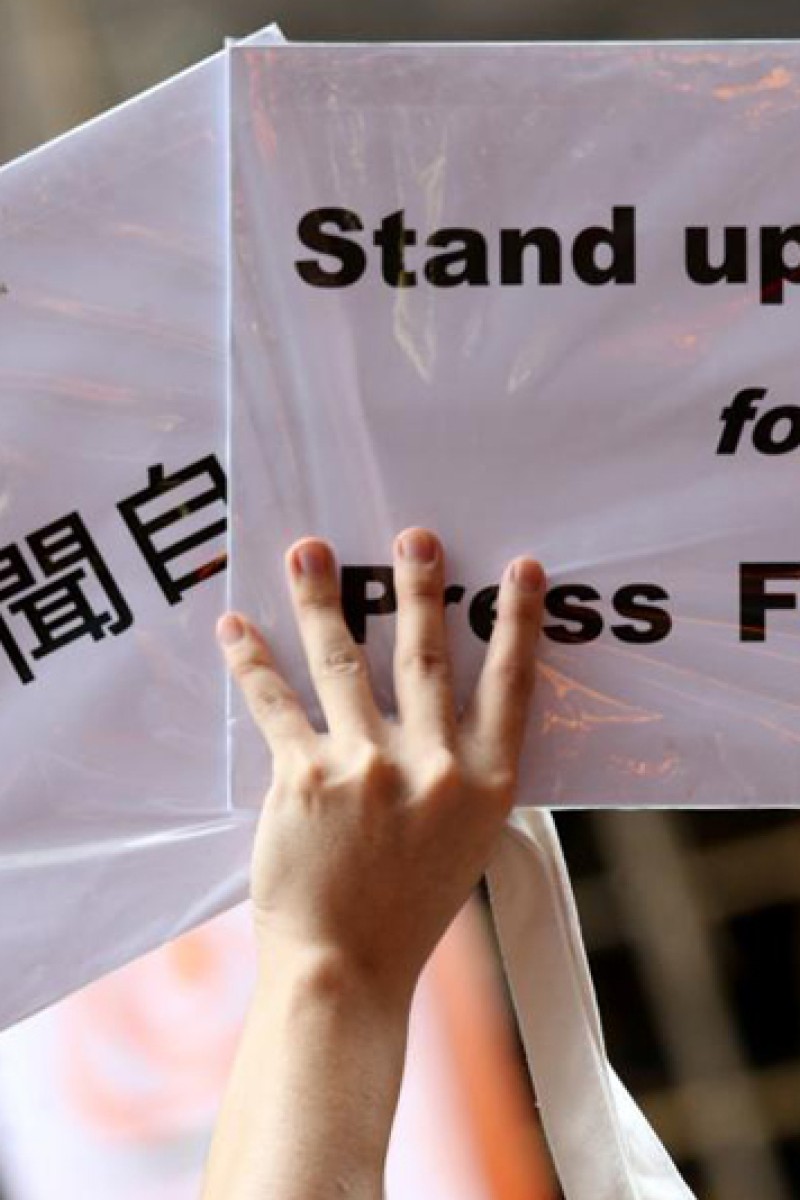 The poll found that 55 per cent of respondents feel there is press freedom in Hong Kong.
The poll found that 55 per cent of respondents feel there is press freedom in Hong Kong.Hongkongers are more confident in the city’s press freedom than they were just seven months ago, a University of Hong Kong survey has found. Researchers interviewed 1,001 Hong Kong citizens by phone between April 10 and 12, and found that with the recent news barrage on social conflicts and coverage of the chief executive election, people’s confidence in our press freedom has increased by 17 per cent.
The poll found that 55 per cent of respondents were happy with local press freedom, while 31 per cent said they were dissatisfied, meaning the net rate of satisfaction – or confidence – was 24 per cent, which was 17 per cent higher than in September last year.
However, about 51 per cent of interviewees believed that the local media conducted self-censorship, while about 30 per cent believed it did not. University of Hong Kong student Joy Pamnani, 18, believes self-censorship exists as media outlets will choose certain information to present. “This may distort the story,” she said. “I feel they often frame a story to favour a certain side.”
Joy Lee, 14, at South Island School, thinks self-censorship can actually be a good thing if used correctly. “Local media should do this, especially to stop the spread of fake news,” she said. “But it shouldn’t block people from expressing their opinions, because that can provide value to readers and offer different perspectives.”
About 58 per cent of respondents believed that Hong Kong’s news outlets had reservations about criticising the government in mainland China, while 33 per cent said otherwise. Meanwhile about 49 per cent said local press were afraid to criticise the Hong Kong government, while 42 per cent did not believe so.
The survey also showed that citizens were most satisfied with the performance of local radio stations when it comes to news coverage, followed by television, online media and newspapers. Oscar Fung, a 15-year-old Evangel College student, was surprised by this statistic, as he find newspapers to be most trustworthy. “Even if the government puts pressure on them, newspapers can’t change their statements after the papers are published,” said Oscar. “But radio, TV, and websites can change anything at anytime.”
Heather Ng Xin-yi, 17, disagreed. The YMCA of YHKCC said: “I trust online news as I can read other people’s comments and views and take that into consideration along with what is written in the article.”
Pamnani says it’s better to take a wider view of the issues. “I don’t think there’s one expert on news,” she said, “so it is important for people to read multiple sources to see through the smart language and reach their own conclusion based on the facts.”
